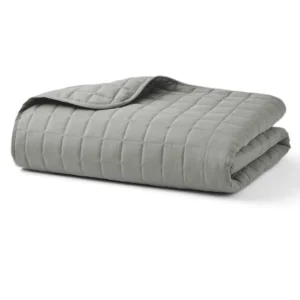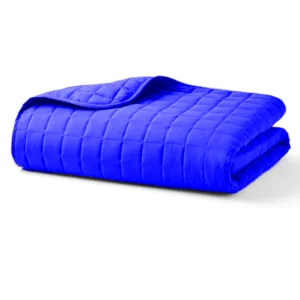

Introduction
Getting a good night’s sleep can feel like an elusive goal in today’s fast-paced world. Tossing and turning, counting sheep, and staring at the ceiling are common experiences for many. Lack of sleep can lead to fatigue, decreased productivity, and various health issues. Fortunately, improving your sleep hygiene is within your reach. In this comprehensive guide, we’ll explore effective strategies to enhance sleep quality and help you wake up refreshed.
1. Understanding Sleep
1.1. The Importance of Sleep
Sleep is vital for physical and mental well-being. It plays a crucial role in:
- Physical Health: Sleep supports your immune system and aids in healing.
- Mental Health: Quality sleep improves mood and cognitive function.
- Productivity: A good night’s sleep enhances focus and efficiency.
1.2. Sleep Stages
Understanding sleep stages can help you appreciate the importance of uninterrupted sleep cycles:
- Stage 1 (Light Sleep): Transition between wakefulness and sleep.
- Stage 2 (Light Sleep): Heart rate slows, and body temperature drops.
- Stage 3 (Deep Sleep): Critical for physical recovery and growth.
- REM Sleep: Essential for memory consolidation and emotional processing.
2. Establishing a Relaxing Bedtime Routine
2.1. The Power of Routine
A consistent bedtime routine signals to your body that it’s time to wind down. Here’s how to create one:
Tips for a Relaxing Routine
- Set a Regular Schedule: Go to bed and wake up at the same time every day.
- Create a Wind-Down Period: Dedicate 30-60 minutes before bed to relax.
- Limit Stimulants: Avoid caffeine and nicotine in the hours leading up to bedtime.
2.2. Activities to Consider
- Reading: Choose light fiction or inspirational books.
- Warm Bath or Shower: Helps to lower body temperature post-bath, signaling sleep.
- Gentle Stretching or Yoga: Relaxes muscles and calms the mind.
3. Creating a Sleep-Conducive Environment
3.1. Optimize Your Bedroom
Your sleeping environment significantly impacts sleep quality. Consider these factors:
Temperature
- Ideal Range: Keep your room cool, ideally between 60-67°F (15-20°C).
Lighting
- Block Out Light: Use blackout curtains or an eye mask.
- Dim Lights: Use soft lighting in the evening.
Noise Control
- Soundproofing: Use rugs and curtains to absorb sound.
- White Noise: Consider a white noise machine or fan to drown out disturbances.
3.2. Choose the Right Bedding
- Invest in Quality: A comfortable mattress and pillows tailored to your sleeping style are essential.
- Consider Materials: Choose breathable fabrics like cotton or bamboo.
-
₦95,000
Wedge Pillows
-
₦60,000 – ₦70,000
Army Green Quilted Blanket
Select options This product has multiple variants. The options may be chosen on the product page -
₦60,000 – ₦70,000
Ash Quilted Blanket
Select options This product has multiple variants. The options may be chosen on the product page -
₦60,000 – ₦70,000
Beige Quilted Blanket
Select options This product has multiple variants. The options may be chosen on the product page -
₦60,000 – ₦70,000
Dark Blue Quilted Blanket
Select options This product has multiple variants. The options may be chosen on the product page -
₦60,000 – ₦70,000
Burnt Orange Quilted Blanket
Select options This product has multiple variants. The options may be chosen on the product page -
₦60,000 – ₦70,000
Dark Chocolate Quilted Blanket
Select options This product has multiple variants. The options may be chosen on the product page -
₦60,000 – ₦70,000
Brown Quilted Blanket
Select options This product has multiple variants. The options may be chosen on the product page -
₦60,000 – ₦70,000
Dark Purple Quilted Blanket
Select options This product has multiple variants. The options may be chosen on the product page -
₦60,000 – ₦70,000
Golden Yellow Quilted Blanket
Select options This product has multiple variants. The options may be chosen on the product page -
₦60,000 – ₦70,000
Blue Quilted Blanket
Select options This product has multiple variants. The options may be chosen on the product page -
₦60,000 – ₦70,000
Cream Quilted Blanket
Select options This product has multiple variants. The options may be chosen on the product page -
₦60,000 – ₦70,000
Grey Quilted Blanket
Select options This product has multiple variants. The options may be chosen on the product page -
₦60,000 – ₦70,000
Green Quilted Blanket
Select options This product has multiple variants. The options may be chosen on the product page -
₦60,000 – ₦70,000
Mint Green Quilted Blanket
Select options This product has multiple variants. The options may be chosen on the product page -
₦60,000 – ₦70,000
Off-White Quilted Blanket
Select options This product has multiple variants. The options may be chosen on the product page -
₦60,000 – ₦70,000
Mustard Yellow Quilted Blanket
Select options This product has multiple variants. The options may be chosen on the product page -
₦60,000 – ₦70,000
Red Quilted Blanket
Select options This product has multiple variants. The options may be chosen on the product page -
₦60,000 – ₦70,000
Sky Blue Quilted Blanket
Select options This product has multiple variants. The options may be chosen on the product page -
₦60,000 – ₦70,000
Silver Quilted Blanket
Select options This product has multiple variants. The options may be chosen on the product page -
₦60,000 – ₦70,000
Navy Blue Quilted Blanket
Select options This product has multiple variants. The options may be chosen on the product page -
₦60,000 – ₦70,000
Lilac Quilted Blanket
Select options This product has multiple variants. The options may be chosen on the product page -
₦60,000 – ₦70,000
Purple Quilted Blanket
Select options This product has multiple variants. The options may be chosen on the product page -
₦60,000 – ₦70,000
Teal Green Quilted Blanket
Select options This product has multiple variants. The options may be chosen on the product page
4. Managing Stress and Anxiety
4.1. Techniques for Relaxation
Stress can be a significant barrier to restful sleep. Here are ways to manage it:
Mindfulness Practices
- Meditation: Spend a few minutes focusing on your breath or using guided meditations.
- Progressive Muscle Relaxation: Tense and relax each muscle group to release tension.
Journaling
- Nightly Reflection: Write down your thoughts, worries, or things you’re grateful for to clear your mind.
Breathing Exercises
- Deep Breathing: Inhale deeply for a count of four, hold for four, and exhale for four. Repeat several times.
4.2. Creating a Stress-Free Environment
- Declutter Your Space: A tidy room promotes a calm mind.
- Limit News Consumption: Reduce exposure to stressful news, especially before bed.
5. Lifestyle Adjustments for Better Sleep
5.1. Daily Habits
Your daytime activities influence your night’s sleep. Here’s what to focus on:
Regular Exercise
- Frequency: Aim for at least 30 minutes of moderate exercise most days.
- Timing: Exercise earlier in the day; avoid vigorous workouts close to bedtime.
Nutrition
- Balanced Diet: Consume a variety of foods rich in vitamins and minerals.
- Avoid Heavy Meals: Refrain from large meals within 2-3 hours of bedtime.
Limit Caffeine and Alcohol
- Caffeine: Avoid caffeine in the afternoon and evening.
- Alcohol: While it may help you fall asleep, it disrupts sleep cycles.
5.2. Sleep-Friendly Foods
- Try Foods Rich in Magnesium: Nuts, seeds, and leafy greens can promote relaxation.
- Consider Herbal Teas: Chamomile or valerian root tea can help calm your mind.
6. When to Seek Professional Help
If you’ve tried these tips and still struggle with sleep, it may be time to consult a healthcare professional. Conditions like sleep apnea or insomnia may require expert intervention.
Signs You Should Seek Help
- Persistent Sleep Issues: Difficulty falling asleep or staying asleep more than three nights a week.
- Daytime Fatigue: Chronic tiredness affecting your daily activities.
- Snoring or Gasping for Air: Signs of potential sleep apnea.
Conclusion
Improving your sleep quality is achievable with the right strategies. By establishing a relaxing routine, optimizing your sleep environment, managing stress, and making lifestyle adjustments, you can take control of your sleep and wake up refreshed.
By implementing the tips outlined in this guide, you’ll be on your way to a more restful night’s sleep and a healthier, happier life. Don’t wait—start your journey to better sleep today with Esorae Home!

























